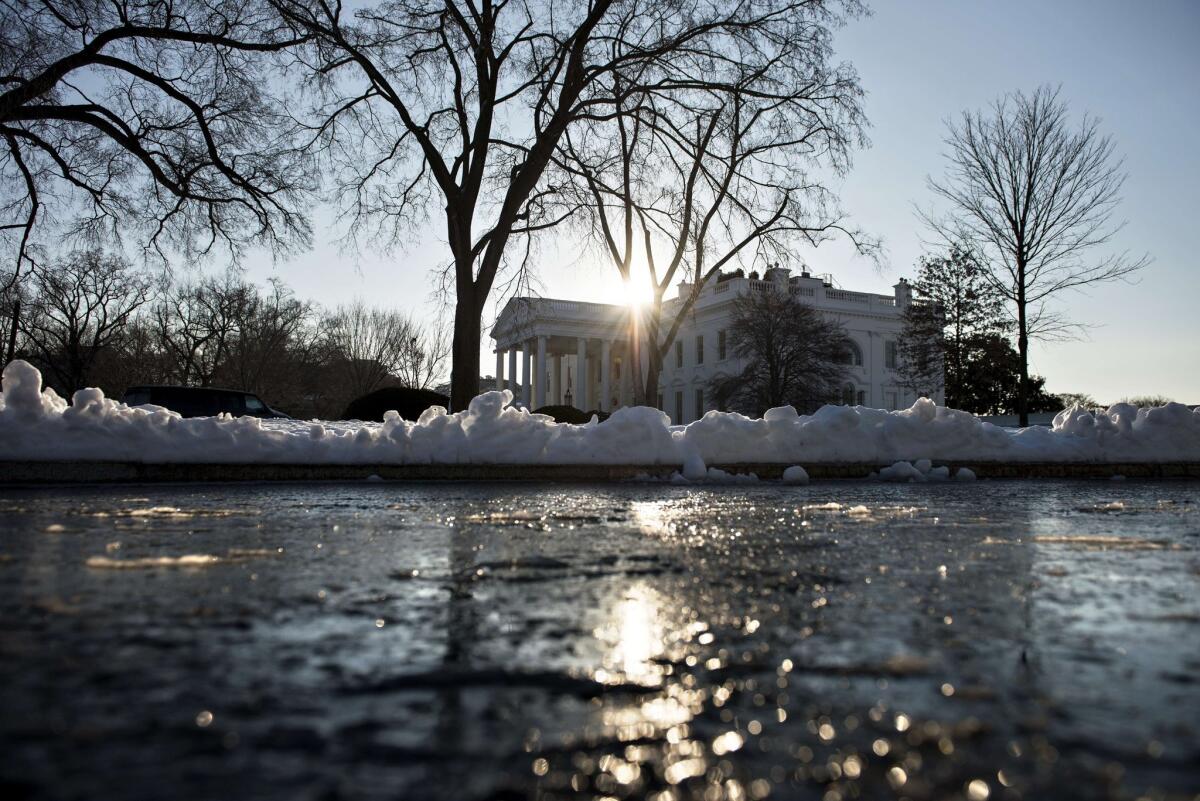Severe winter weather estimated to cost U.S. economy nearly $50 billion

- Share via
The severe weather that has hit much of the country this winter has cost the economy nearly $50 billion in lost productivity and 76,000 jobs, according to a new survey.
Snow, ice and bitter cold will shave about 0.3 percentage point from economic growth, according to Wall Street economists, fund managers and strategists polled by CNBC.
In an economy with about $15.7 trillion in total output, or gross domestic product, that comes to about $47 billion.
PHOTOS: Federal Reserve chairs through the years
The weather that has made much of the country at times look like it could host the Winter Olympics also hindered labor market growth, partly causing the disappointing government jobs reports in December and January.
The survey respondents estimated storms and cold cost the economy 32,000 jobs in December, 25,000 in January and would reduce payrolls by 19,000 this month.
University of Maryland economist Peter Morici estimated the rough weather, such as the snowstorm that struck Washington, D.C., and much of the East Coast this week, would cost the economy $20 billion to $40 billion.
“The January freeze and crippling storms gripping the eastern United States and upper Midwest are having significant impacts on normal life and commerce,” Morici said.
“The country braces for cold and storms each winter, but this year’s conditions are more severe than cities and counties customarily prepare to address,” he said.
The bad weather was blamed for a 0.4% drop in retail sales in January compared with December.
“Following a solid holiday sales season, it seems that many consumers decided to take a break from the stores and shopping malls this January in an attempt to avoid winter weather,” Mathew Shay, president of the National Retail Federation, said Thursday after the Commerce Department reported the disappointing sales figures.
But Morici said that unlike decades ago when lost factory time was difficult to make up, the modern service economy should recoup much of the weather losses in the second quarter of the year.
“Folks that did not buy cars in January and February will purchase those in March and April,” he predicted. “Buildings will be repaired and improved, and that adds, not subtracts from GDP.
Participants in the CNBC survey also anticipated a snap back from the winter losses.
The survey found that including lost productivity from December, the winter weather would cost the economy about 0.56 percentage point of growth.
But respondents predicted pent-up demand would lead to a boost to second quarter growth of about 0.23 percentage point, reducing the total economic impact to about 0.3 percentage point.
More to Read
Inside the business of entertainment
The Wide Shot brings you news, analysis and insights on everything from streaming wars to production — and what it all means for the future.
You may occasionally receive promotional content from the Los Angeles Times.











